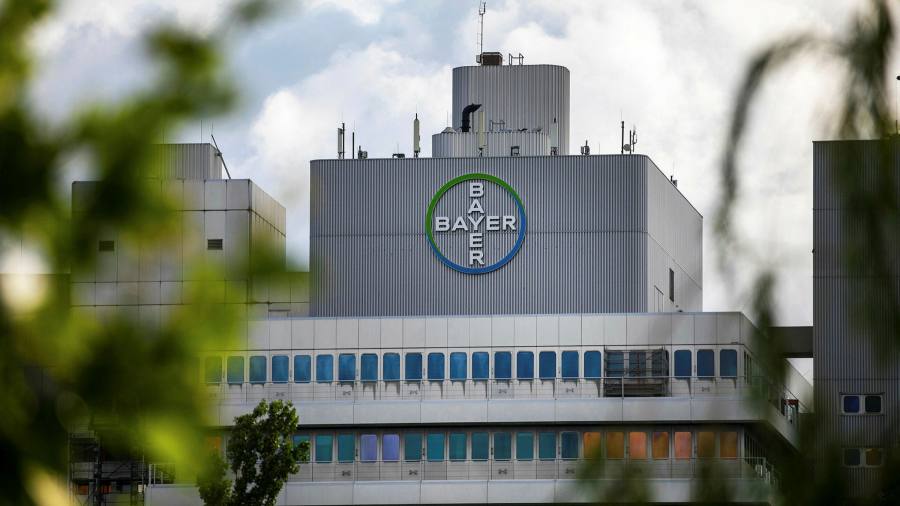Bayer is set to buy a Californian biopharmaceuticals start-up for up to $2bn as the German drugs and agrochemicals group pushes into novel therapeutic and research approaches in healthcare.
Vividion Therapeutics has developed a technology for discovering drugs, in which it analyses the interactions between chemical drugs and proteins in the human body. The hope is that this technology, dubbed Chemoproteomics, will help discover drugs for diseases that at present cannot be treated.
Previously, that search process “has been a random walk on a bigger and bigger scale for decades”, Vividion chief executive Jeff Hatfield told the Financial Times, adding that the start-up’s technology is “turning that into a precision methodology using technologies that did not exist a few years ago”.
The company’s research programmes are seeking new treatments against cancer as well as inflammatory diseases such as irritable bowel disease, said Bayer.
“We [often] know there’s a mechanism that causes a disease, but we have no way to attach a drug to that biological mechanism [to treat it],” Bayer’s pharma boss Stefan Oelrich told the Financial Times. “The promise of this new technology is that you can now go into spaces where we could not go before.”
The transaction, which was announced on Thursday alongside Bayer’s second-quarter earnings report, is the third big-ticket deal in pharma in two years after it bought cell therapies company BlueRock Therapeutics in a transaction valuing the company at $1bn in 2019 and the $4bn acquisition of gene therapy pioneer Asklepios BioPharmaceutical in October. Bayer is paying €1.5bn for Vividion and has agreed to another €500m in success-related payments.
The acquisition spree of small, innovative biotech start-ups has been a cornerstone of Oelrich’s strategy. Poached from rival Sanofi in 2018, he wants to transform the German group into an innovation “powerhouse”.
San Diego-based Vividion was founded two years ago by a team of scientists around Benjamin Cravatt, professor for molecular medicine at Scripps Research, the top US non-profit scientific institute, according to a ranking by the Nature Index.
Bayer’s pharmaceuticals business in 2020 generated 42 per cent of the group’s revenue but 52 per cent of its operating profit before exceptional items. It is poised to lose patent protection of two of its bestselling drugs — the anti-clotting medication Xarelto and the eye medicine Eylea.
Bayer’s second-quarter healthcare revenue jumped 12.6 per cent year on year to €4.5bn, compared with a 4.6 per cent increase in the crop science unit to €5bn, the company said on Thursday.
The German company is reeling from its ill-fated 2018 acquisition of US seed maker Monsanto for $63bn, which exposed the German company to the legal battle over weedkiller glyphosate.
Last year, Bayer agreed to pay $9.6bn to settle 125,000 existing claims and lawsuits from users of the weedkiller who suffer from cancer. A second $2bn settlement for future claims was dismissed by a US judge in May. Last month, Bayer disclosed it will take an additional provision of $4.5bn provision related to the weedkiller.

